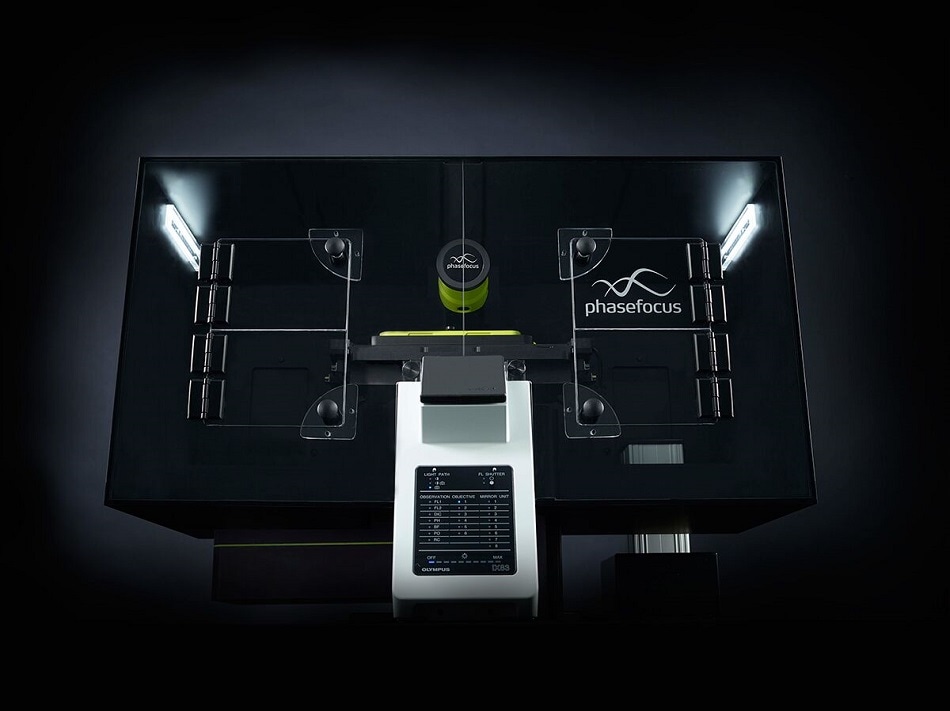
Phasefocus' Livecyte® Cell Aalysis System Image Credits: Phasefocus
Phasefocus provides a range of products and services based on its proprietary Ptychographic Quantitative Phase Imaging (QPI) technology to provide a wide range of analytical applications including label-free cell imaging and quantitative electron phase microscopy. Here, they report on the Light Microscopy Science Technology Platform at the Francis Crick Institute’s selection of the Livecyte® label-free cell analysis system.
Dr Kurt Anderson heads up the Light Microscopy Science Technology Platform at the Francis Crick Institute. They specialise in high resolution, high throughput, fluorescence microscopy, three dimensional (3D) digital imaging, time-lapse and low-light-level imaging. The facility allows access to state-of-the-art equipment including single and multiphoton laser scanning confocals, spinning disc confocal, lightsheet and wide-field microscopes with deconvolution.
Dr Anderson leads a team in the development of light microscopy techniques and their applications in collaborative projects with several Crick research laboratories. These include the development of specialised imaging techniques, technology and data analysis. Live cell imaging is one of the areas of particular emphasis. With this in mind along with the aim to keep the facility up to date with the cutting-age imaging techniques, Dr Anderson has recently invested in the Livecyte label-free cell analysis from Phasefocus. Describing his decision and expectations for the system, Dr Anderson said “Research at the forefront is highly competitive, and our scientists are constantly on the lookout for something that will give them an edge. We were attracted to the Livecyte by the unique combination of innovative optics and powerful image analysis software.”
I’m delighted that the prestigious Francis Crick Institute has chosen Phasefocus to supply a Livecyte cell analysis system to be one of the first new instruments to be installed at their landmark new facility. We are looking forward to working with the scientists at the Crick and I’m excited about the potential of the Livecyte system for deepening understanding of the behaviour of live cells.
Dr Martin Humphry, CEO, Phasefocus
Phasefocus sees the immense potential for the Livecyte technique and the wealth of information available to be unlocked. Livecyte enables quantitative label-free live cell analysis. With robust automatic tracking and behavioural analysis of hundreds of individual cells within heterogeneous cell populations, it is now possible to image without the need for intrusive dyes or labels. Unique morphological, temporal, and dynamic phenotypic data make it simple to gain new biological insights and accelerate research.